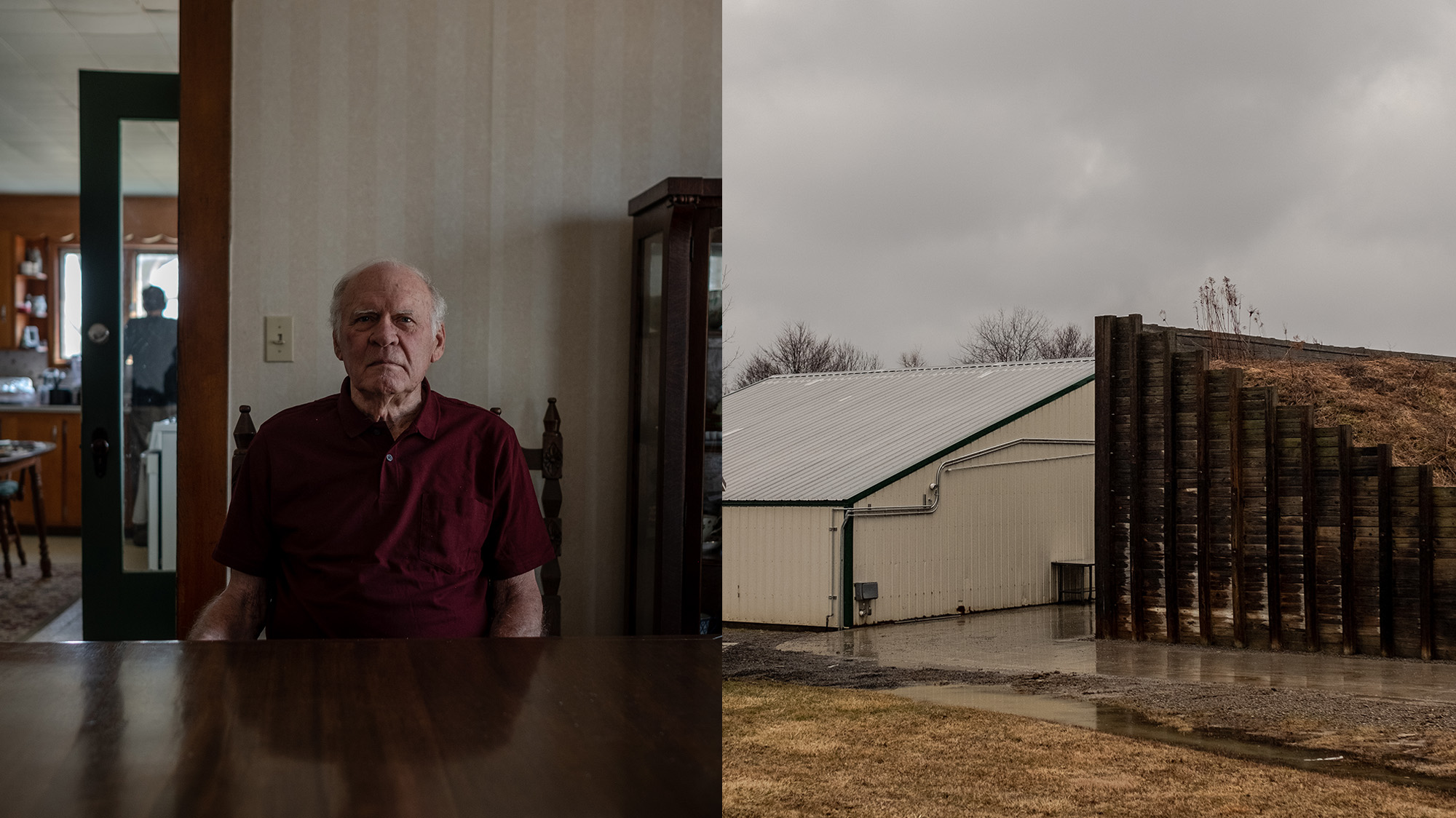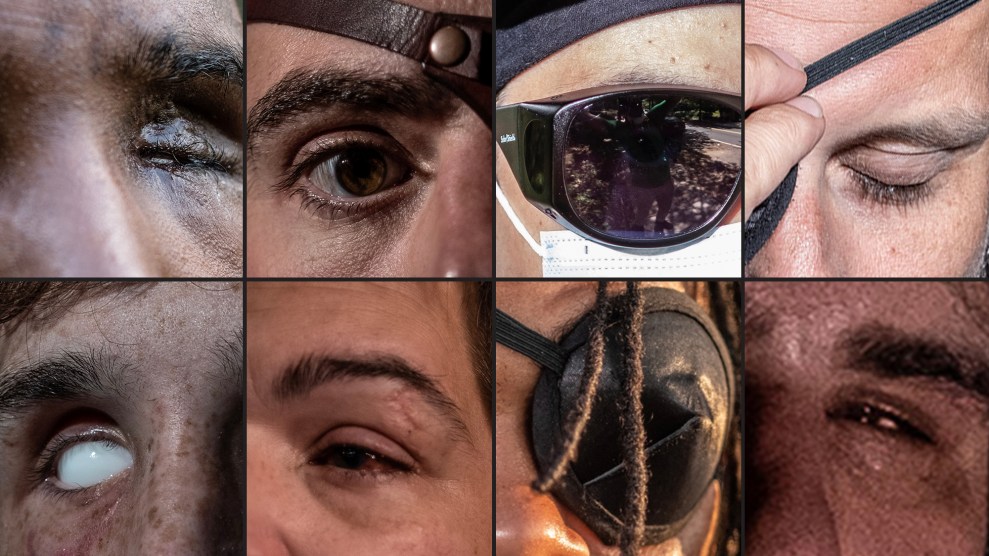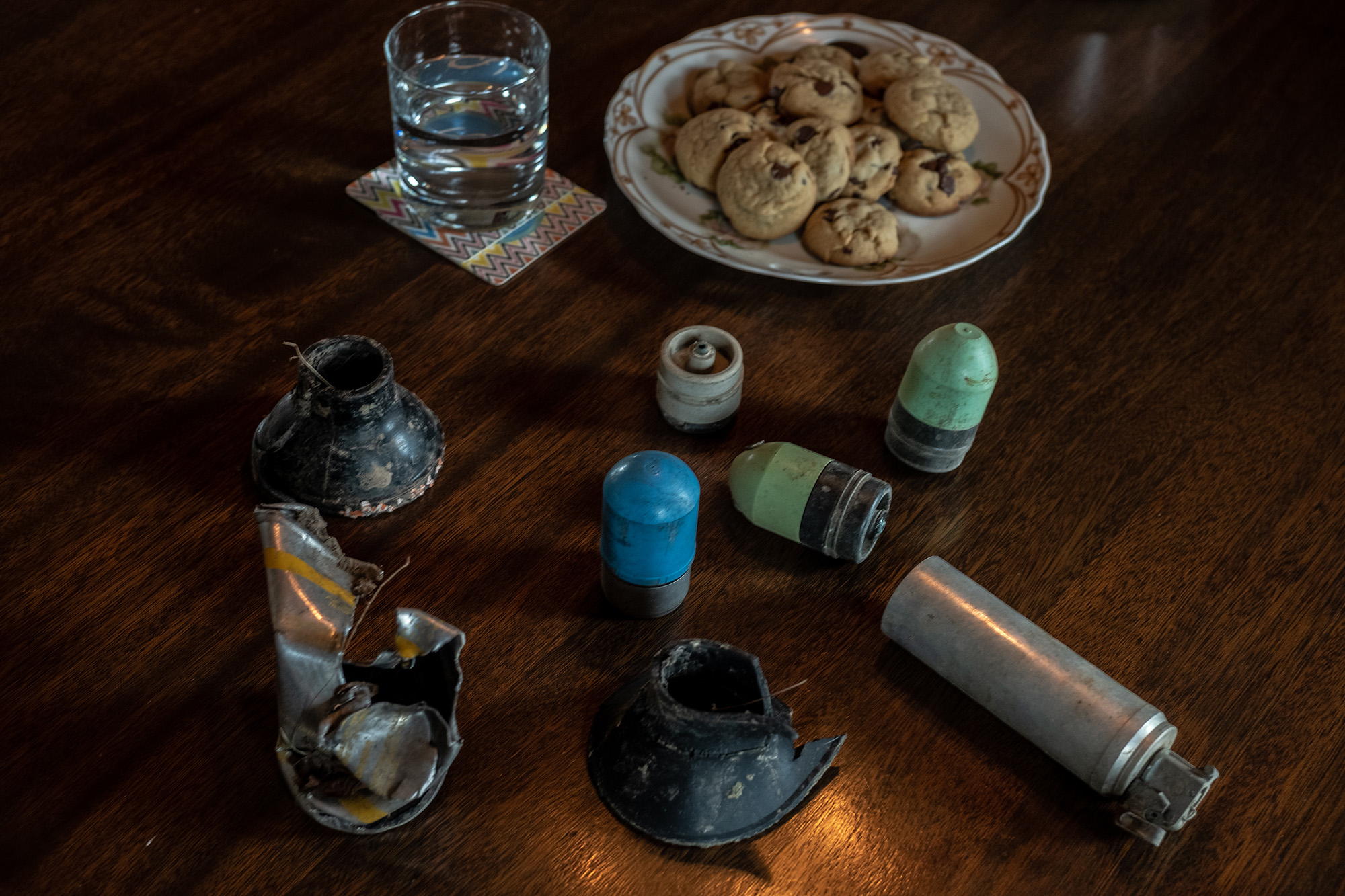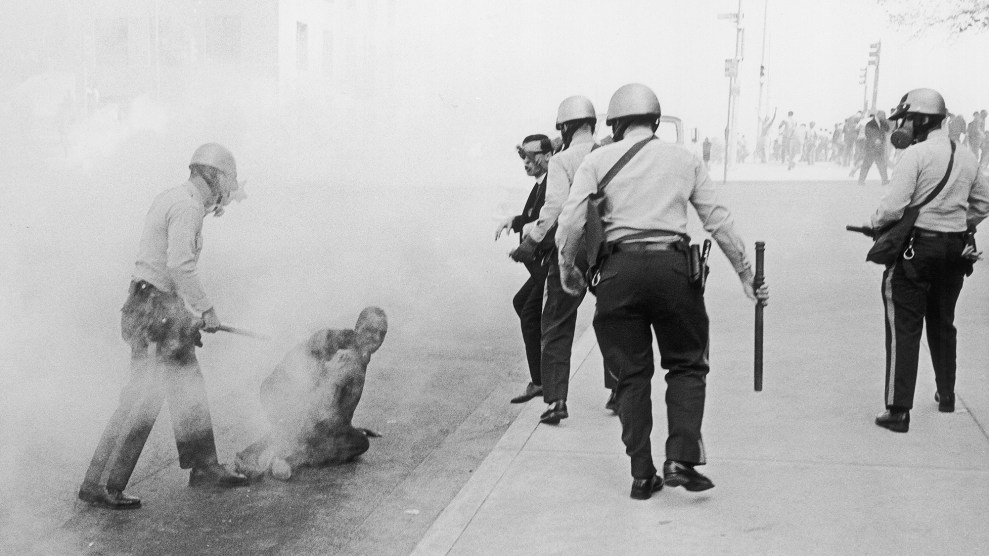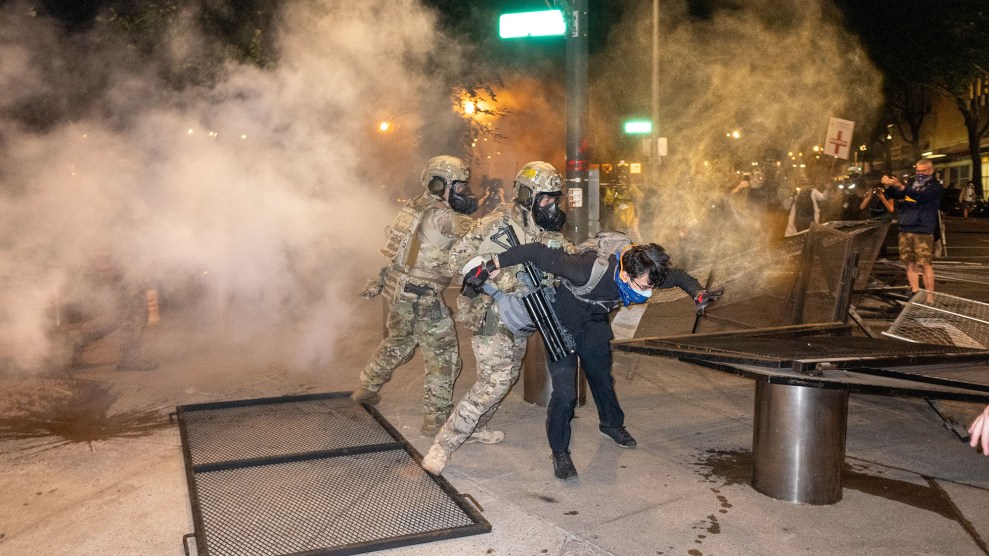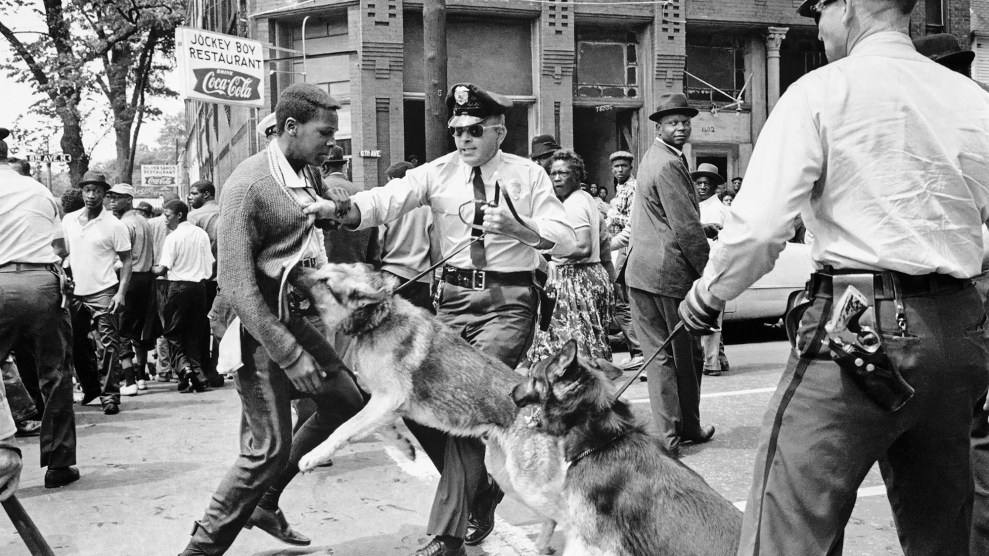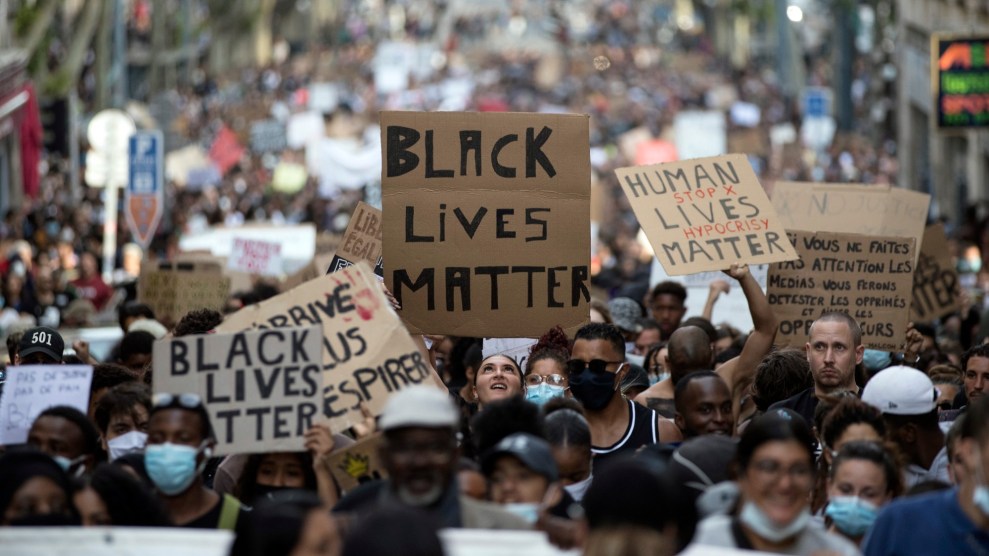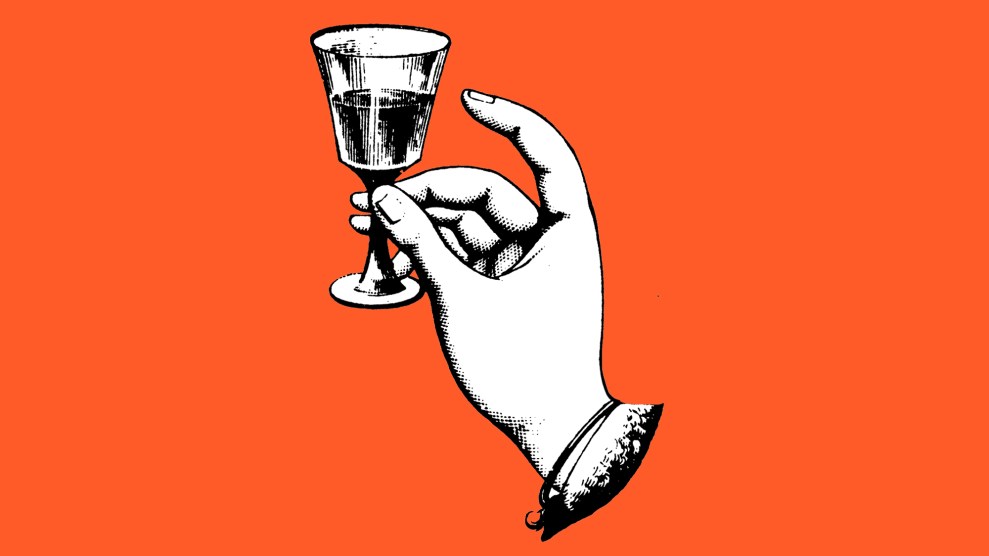This project was reported with support from the Pulitzer Center.
The video camera pans across an empty front porch. A light breeze rustles the leaves of the trees lining the driveway. An empty bird feeder swings gently from a branch. Suddenly there’s a loud explosion and a distant echo, followed by another and another in rapid succession—a Pennsylvania pastoral obliterated in an instant by sounds of war. A resigned, elderly voice narrates the blasts. “This is what makes this house completely unsellable,” he says. “It makes this house worthless.”
The voice belongs to David Laurie. The explosions are the work of Combined Systems Incorporated, a manufacturer of so-called “less lethal” munitions that sits due west of David and Sandy Laurie’s house in rural Jamestown, Pennsylvania, about 100 yards away and just a little below. Over the years the Lauries have taken it upon themselves to document the experience of living by a tear gas factory, the constant booms, the clouds of tear gas caught up in the eastward breezes.
“Who would buy this place in their right mind,” David’s narration continues, “putting up with this day after day, month after month, for years?” This is what it’s like when the domestic suppression industry moves in next door.
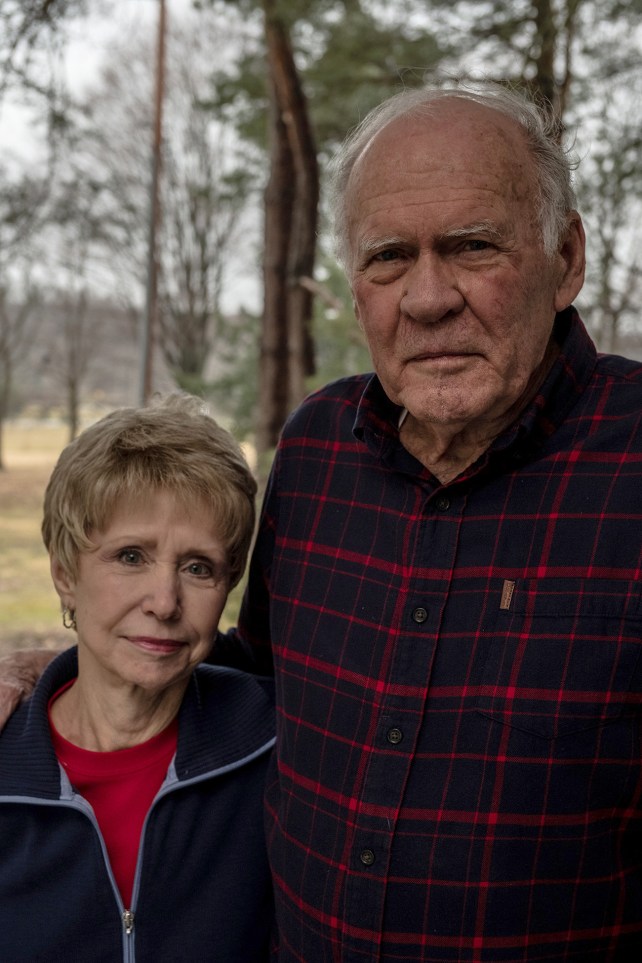
David and Sandy Laurie on the front porch of their farmhouse
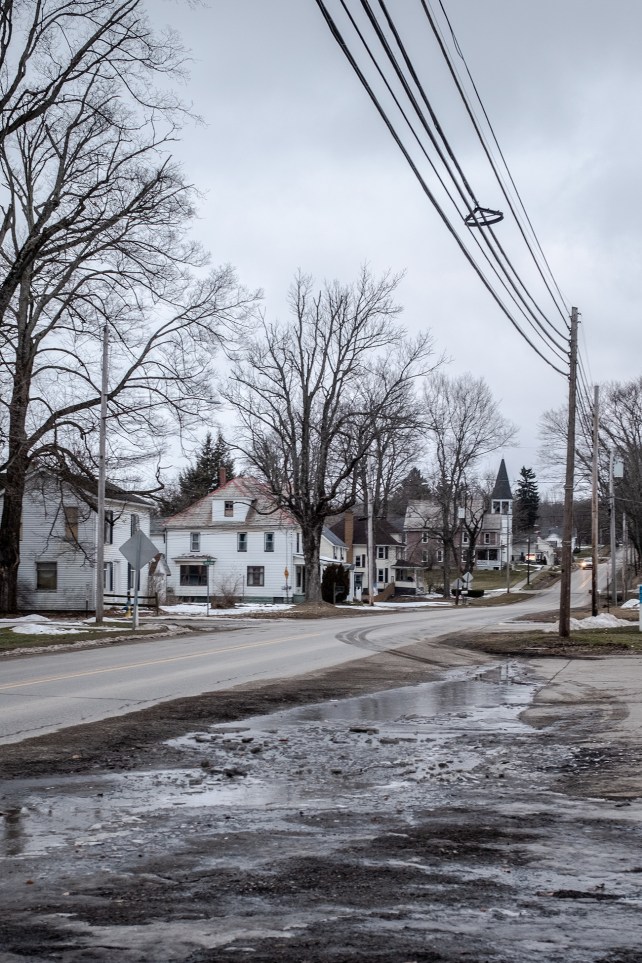
Located in western Pennsylvania, Jamestown is home to 730 residents. Many used to work in the region’s steel and railroad industries. Today the town’s largest employer is the school district.
David Laurie cut me off. “I don’t care. You do not have my permission to talk to my lawyer. I want it to be very clear—I’m not consenting to anyone talking to you about our case.” Then he hung up. His former lawyer, Robert C. Martin, had warned me I might run into some trouble with Laurie. “I’ve never been fired, rehired, and fired again like with Mr. Laurie,” Martin said. “He’s a grumpy old man, but I guess who can blame him? I mean, living through what the Lauries have had to deal with all these years with CSI next door.”
I disregarded Laurie’s injunction and reached out to his new lawyer via email to set up an interview with the couple. In March 2021, I drove up to the Lauries’ home. David met me at the side door. His wispy gray hair was combed over his bald scalp, and his brow was pulled downward by what I would soon realize was a permanent frown. At 83, Laurie was a little unsteady on his feet but he could still stand tall when the need arose.
The Lauries’ 150-year-old farmhouse was neatly maintained. Nothing was out of place among the baby-blue carpets, leather recliners, and dark wood furniture—nor was there a speck of dust to be found. Sandy had left a full plate of homemade chocolate chip cookies on both the kitchen and dining room tables.
Over a glass of iced tea and a cookie, David recounted how his family had ended up in Jamestown. They’d bought the property in 1978. As a commercial pilot for the now-defunct TWA and Ryan Airlines, he’d been on the road for decades. He and Sandy were looking for a rural corner of the country in which to raise their two young sons, John and Tom. “It was an entirely different place back then…It was definitely very quiet. This piece next door had a small lake on it and the kids would go catch fish and throw them back in.” David detailed how he and his wife laboriously rebuilt and renovated the farmhouse. He added a “drinking porch,” and Sandy cultivated an abundant vegetable garden in the backyard. The boys spent their childhood playing in the hay fields, wetlands, and woods that made up the 42-acre property.

The Lauries bought their farmhouse in Jamestown in 1978, more than two decades before Combined Systems Incorporated purchased the adjacent property.
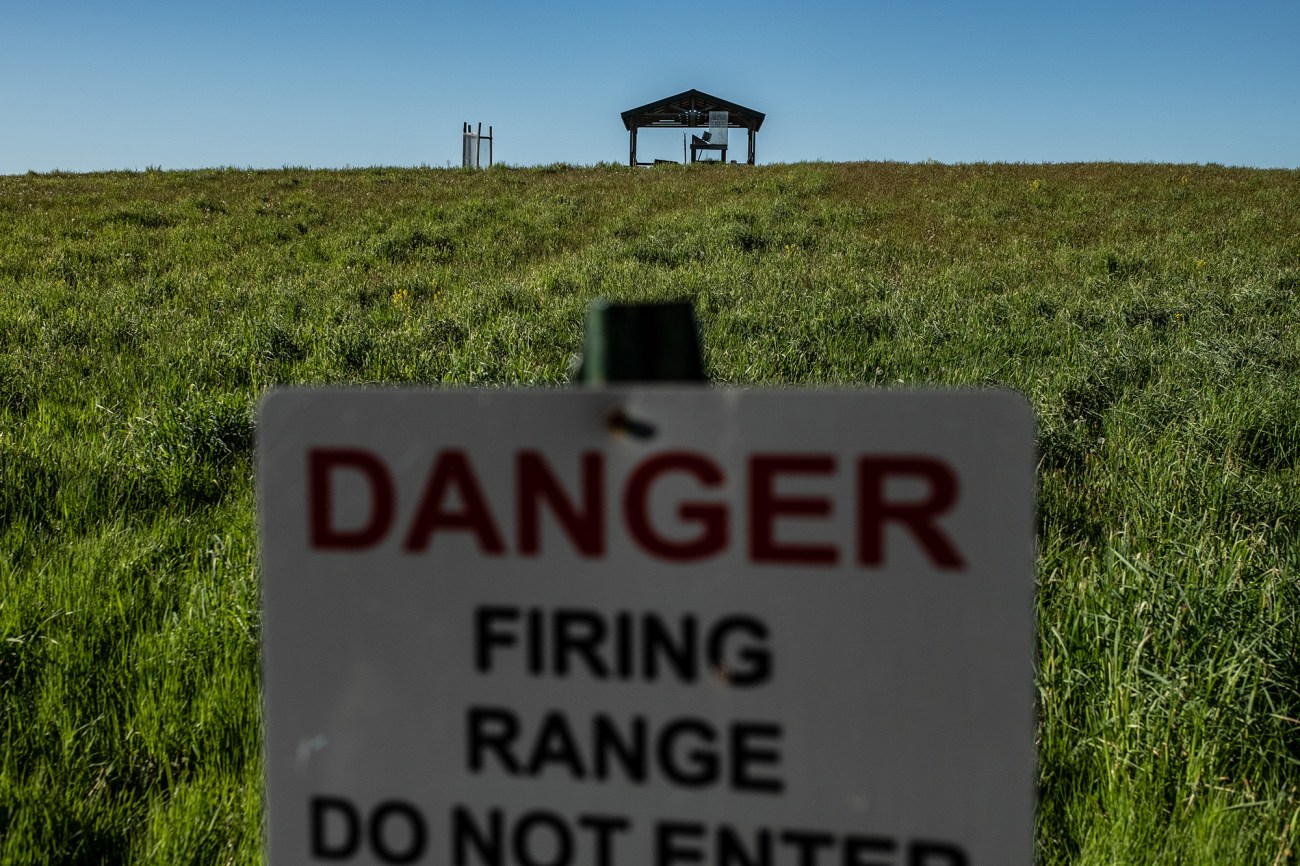
CSI tests its munitions in a firing range behind its manufacturing plant.
In 1995, CSI built the company’s new headquarters in Jamestown, and the Lauries’ nightmare began. The pond where John and Tom Laurie fished as kids was replaced by CSI’s manufacturing plant and a firing range. The peace and quiet the Lauries had prized was now interrupted by loud and repeated explosions, by ominous smoke floating in their direction.
Michael Brunn and Jacob Kravel founded Combined Systems Incorporated in 1981. The two Israeli American engineers built their less-lethal weapons company on the multiple patents for future weapons systems they had already developed. In 2005, Kravel told a reporter from the Manufacturer & Business Association’s magazine, “Growth in the company is due to the development of new products, not necessarily 9/11.” CSI initially catered to the US military, federal law enforcement agencies, and some state and local police departments; since 2002 the company has received more than $75 million in federal contracts and grants. However, CSI quickly grew to be a global leader in the less-lethal weapons industry, contracting with security agencies in Israel, Chile, Colombia, Bahrain, Egypt, and Hong Kong (to name a few).
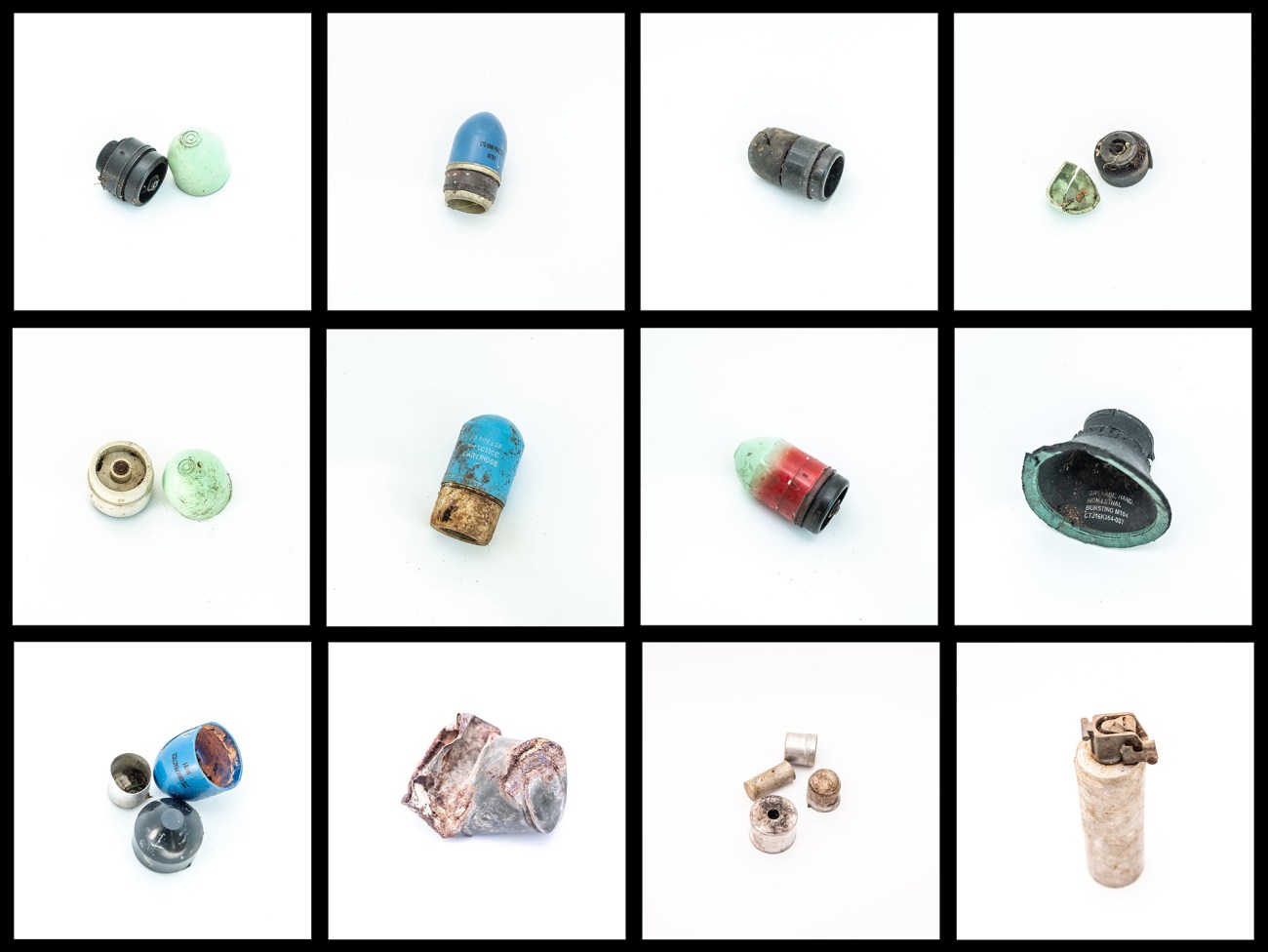
By fall 2020, the company listed more than 130 less lethal products on its website. There were launchers, flash bang grenades, tear gas grenades, tear gas shells, smoke grenades, munitions for breaching barricades, wooden bullets—in all, the sort of crowd-control weaponry that police used on Americans during the George Floyd uprisings of last year. (During a protest in Washington, DC, I was struck by a tear gas canister and lost much of my vision in one eye.) All of these products were manufactured in Jamestown and were tested before shipment to clients. Many of CSI’s products were specifically designed to be loud and cause disorientation. This was particularly true for the company’s line of flash bangs. CSI described its Model 7290 Steel Body Flash Bang as “an ATF-controlled Class-C explosive device that emits a bright light and thunderous noise to distract potentially dangerous individuals.”
An hour’s drive north of Pittsburgh, Mercer County used to be solidly unionized, a stronghold of the United Steelworkers of America. But by 2018, 15 percent of Jamestown’s 648 residents lived below the poverty line. The large industrial manufacturers had long since left the region and the local school district was now the town’s largest employer, followed by a small paint manufacturer. Laurie figures the area’s depressed economy, its negligible property taxes, its lack of zoning regulations, and its strategic location near various interstate highways must have made Jamestown an attractive proposition to CSI’s management and investors.
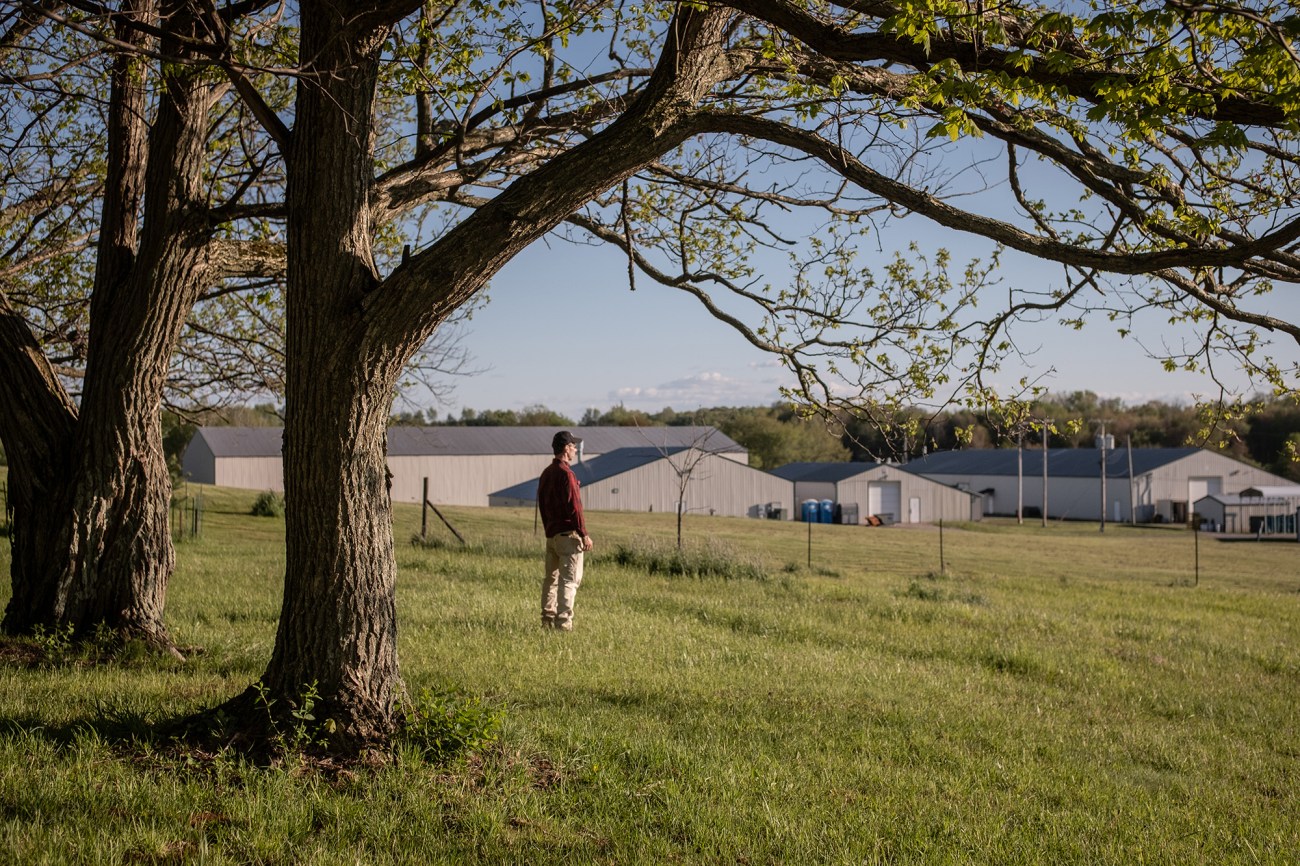
From his family’s property, Tom Laurie looks out over CSI’s manufacturing site.
Laurie claimed CSI’s management was never transparent about its intentions for the Jamestown site. In public meetings before construction, Michael Brunn played down the size of the future facility and argued there would be relatively little disturbance to the company’s few neighbors. “We won’t set up shop where we’re not wanted,” Brunn said in an August 2, 1995, article in the Mercer County Herald. “It wouldn’t make sense. We are not going to force ourselves down anyone’s throat, that is for sure.”
“They assured everybody that the only thing they were ever going to do was they were going to have one old man who was going to test their stuff with a shotgun twice a week and UPS was going to come and take a small package away, and that was going to be the extent of their manufacturing,” Laurie said. “That was hogwash.” Laurie seethed with resentment as he flattened a white linen placemat in front of him. “When they moved in and started shooting tear gas all over our woods, I went next door and confronted Richard Edge”—CSI’s chief operating officer—“and I said, ‘You’re firing over our property and I want you to stop,’” Laurie paused. “And he said, ‘WE ARE NOT!’”
When CSI didn’t respond to his repeated complaints, Laurie approached local management about buying his property. He argued that for a relatively small investment CSI could buy out its closest neighbor and create a buffer zone between the manufacturing and testing site and the next-closest neighbor. Laurie said management scoffed at the offer. That was when he started keeping notes on the company’s activities, recording and measuring the decibel levels of the explosions, videoing incidents of tear gas drifting onto his property, and documenting CSI’s multiple building fires.
In 2006, CSI reached a formal agreement with the Greene Township board of supervisors. The board granted the manufacturer the right to test munitions at any time from 9 a.m.–5 p.m., Monday through Saturday. With 72 hours’ notice, CSI could blow up its products outside of these agreed hours. Laurie said the agreement was signed without any public hearing or consultation. In 2007, the Lauries hired a surveyor to check out their property, but he couldn’t finish the job. Laurie recalled the voice message he’d received from the surveyor: “Mr. Laurie you have to come out here because your place is just littered with all of this plastic stuff they have been shooting at your property, and we got chased out of here because of the tear gas, and I won’t come back here unless they agree not to be shooting over where we are working.” That is when Laurie discovered the hundreds of munitions, both live and spent, that littered his woods.
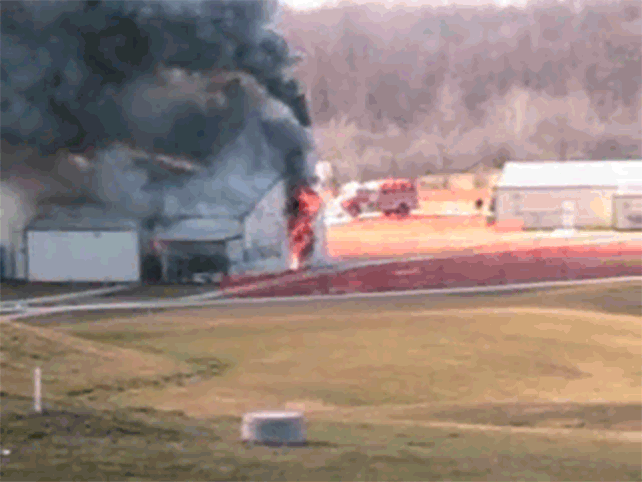
Laurie couldn’t take it anymore. Official CSI testing activity logs show the company was testing on a daily basis, both indoors and outdoors. Often the company would do multiple outdoor test-firing sessions on a single day. In December 2014, Laurie met with a lawyer and persuaded nine of his neighbors to file a lawsuit against CSI. The group lawsuit was short-lived. By 2016 the Lauries and another family were the only plaintiffs. Laurie suspected his neighbors had been bought off, but Sandy Laurie said it was more likely they felt powerless against CSI. “I think that people in an area like this, they figure that the company is so large what can they do? So they just don’t bother and don’t do anything about it.” Laurie wouldn’t be bullied. He wanted CSI to pay for the psychological torture he claimed CSI had inflicted on his family, and he wanted a reimbursement for the depreciation of his property due to CSI’s operations.
CSI hired Timothy Bonner to lead its defense. In 2020, Bonner, a Republican, was elected to the Pennsylvania state legislature. He has since co-sponsored a bill that deregulates firearms and protects firearms manufacturers from liability for injuries or deaths caused by their products. In court documents filed by CSI, Bonner argued that all of the company’s operations were within the law. He claimed CSI discontinued outdoor testing of tear gas and other irritants in 2010. He wrapped CSI in the American flag, arguing that the company’s products were essential to the national defense and that the plant brought good jobs to a region in need. Bonner said the plaintiffs knew about the company’s plans before the manufacturing site was built and didn’t complain then. Finally CSI’s defense was anchored in Bonner’s reasoning that testing was limited to 59 seconds a day and was no more a nuisance than the sound of gunshots by local hunters in nearby forests.
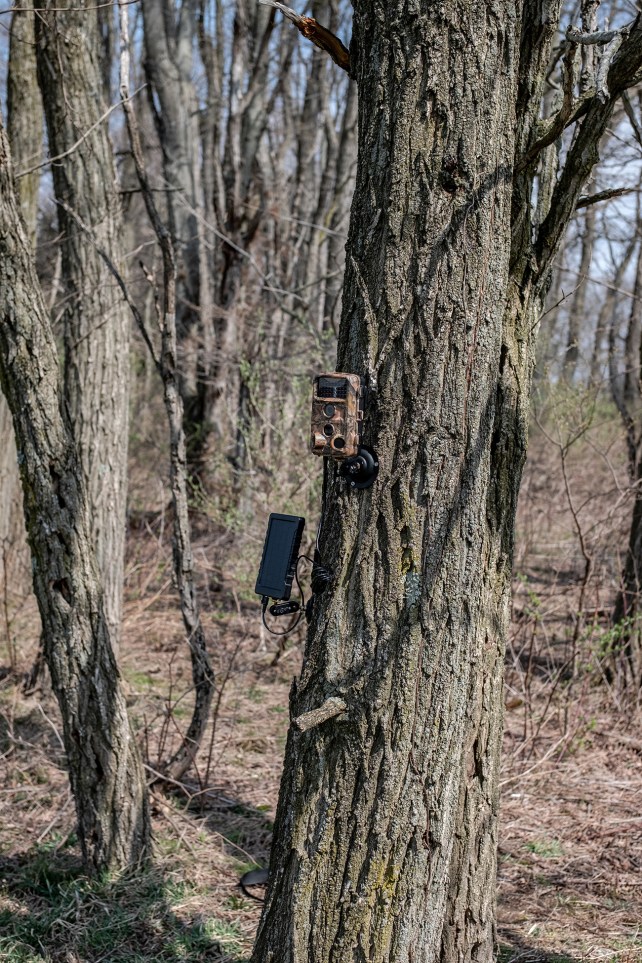
The Lauries have installed solar-powered game cameras along their property line to record their neighbor’s activities.
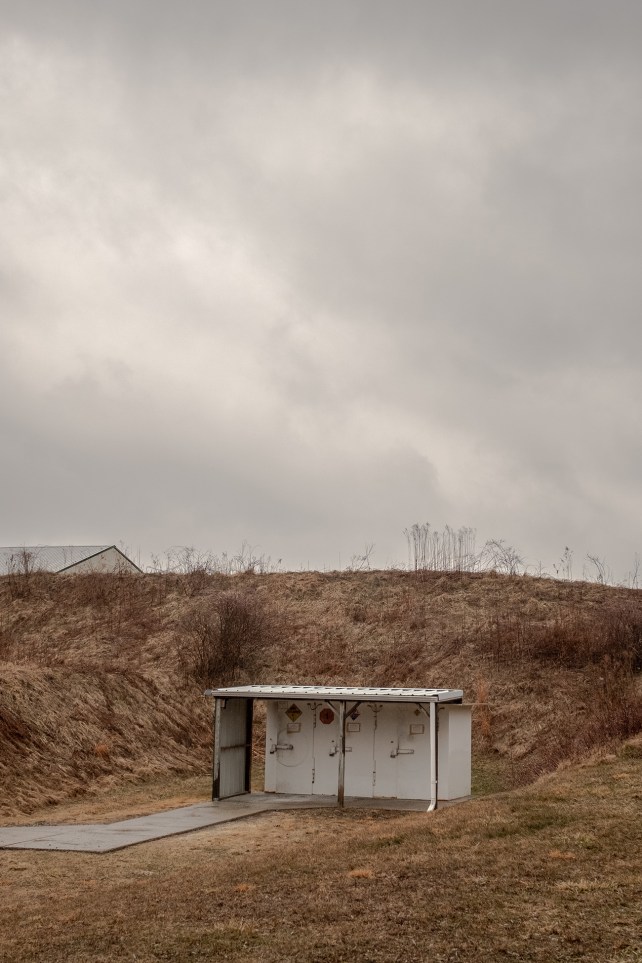
Berms and barricades designed to reduce the impact of accidental explosions at the CSI site can be seen from the Lauries’ property.
For six years the case languished in legal to-and-fros, changes of attorneys, and a judge recusal. David Laurie’s son Tom put his life on hold to come home and support his parents. The case had taken its toll on all of them. “You go outside to enjoy a summer day and you hear huge blasts and smells and things like that,” Tom said. “Inside its the same thing. Birthdays, Christmases, holidays of any kind—it’s just nonstop interference. It’s debilitating in a sense. Whatever joy other people are experiencing during those times—I don’t want to say it’s better, but it’s definitely not tainted by what we’re experiencing. That’s what probably sticks with me the most. It is tainted, like bad water. It’s drinkable but…”
The case is set to go to trial next March. (Bonner has recused himself.) While David Laurie was overjoyed that his family would finally get their day in court, he was less enthusiastic about the possible outcomes. After two decades of battle with CSI, he recognized the enormous challenge of winning against the weapons manufacturer. His retirement had been spent fighting the company. His savings were depleted, and he knows no one will ever want to buy the family home.
When I asked the Lauries how CSI had altered their view of the world, Tom responded without hesitation: “It just proves to me that there’s probably better, safer, healthier ways to take care of crowd control or whatever the issue is, other than this stuff. There’s a reason it is banned in warfare. Living next door, you have a very real experience of what other people go through. And it just shouldn’t be used. Period. On anybody, for any reason.”
David Laurie interrupted his son: “I had an AR-15, and I sold it. It just seemed to me that it was something to use that was just evil. So I sold it.” All of the family members agreed they’d never go see fireworks again.
